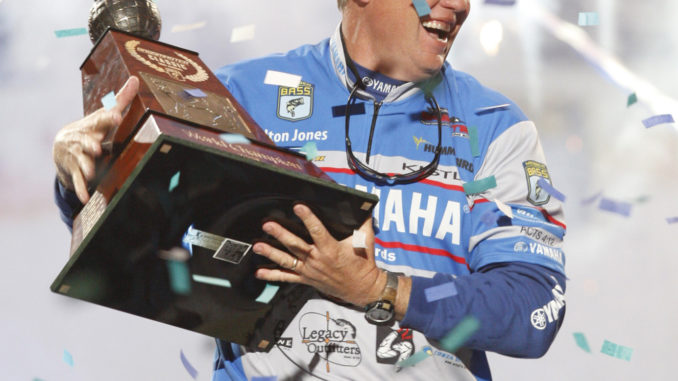
Local experts believe it will take shallow and deep bass to win the Bassmasters Classic on Lake Hartwell.
Texan Alton Jones won the 2008 Bassmaster Classic on South Carolina’s Lake Hartwell with three daily limits of five fish each that averaged slightly under 3 1/2 pounds per fish.
Could the Upstate reservoir produce an even heavier average weight in the 2015 Classic, which will be played out Feb. 20-22 out of Greenville? Indications are that is a real possibility.
Several factors could influence the catch dramatically in the 2015 Classic — the weather, the lake level — and the growth of spotted or Alabama bass in the lake.
Jones won his Classic when Lake Hartwell was at a drastically low level: more than 20 feet below normal pool. He caught his fish 25 to 35 feet deep along the edges of submerged, standing timber.
“I wanted to fish deep, but as shallow as I could be, so I moved to the shallowest edge of the timber,” Jones said. “Out to 25 feet, it was a moonscape. Then it looked like a forest.”
He worked two jigs and a jigging spoon to catch his fish. Jones caught limits of 17 pounds, 5 ounces and 18 pounds, 11 ounces, the first two days, and then captured the $500,000 first prize on the third day with a limit at 13 pounds, 7 ounces, more than 5 pounds ahead of runner-up Cliff Pace of Mississippi. Pace, who won the 2013 Classic on the Grand Lake O’ the Cherokees out of Tulsa, Okla, will be seeking some Hartwell redemption in his quest for a second Classic title,
Two local anglers with considerable experience and success on Lake Hartwell said Jones’ winning strategy could be a key element of this month’s Classic, but several other factors could have a major effect on the outcome.
“There definitely will be a deep bite,” said Brandon Cobb of Greenwood, who has won two Bass Fishing League tournaments on Lake Hartwell in the past two years. Cobb, a former member of the Clemson University fishing team, spent a lot of time learning Lake Hartwell when he was a student. How much the deep bite will factor in depends on the water level, he said.
“When Alton Jones won in 2008, the main reason those fish were out there in 25 feet of water was because the lake was down 21, 22 (or) 23 feet. There was basically no shoreline cover and the banks were dry,” Cobb said. “The lake is down again, but not as much, so there is a good bit of shoreline cover in the coves and creeks. The lake could come back up more, and if it does I don’t believe the Classic will be won deep. But if it remains down, I think it will be won deep.”
Cobb said he would start out trying to find a deep school of fish and go after them with Blade Runners, football jigs, a drop- shot rig and a jigging spoon.
“In February, the fish should be in prespawn — although it will be up in the air how close to the spawn — but those pre-spawn fish will still be caught deep. My go-to prespawn bait on Hartwell is a brown jig.”
Brad Fowler of Pendleton, who won a BFL Regional Championship on Hartwell in October 2013, also believes the Classic could be won on a deep pattern, and that would be his strategy if he were fishing the Classic, he said.
“The potential will be there in the right area. I’d be fishing in an area similar to what Alton Jones did, and I’d also stay in touch with the bite in the creeks and the ditches,” said Fowler, whose arsenal would include a jigging spoon, a Blade Runner, a jerkbait and a drop-shot rig.
“There will be some good catches on a drop-shot,” predicted Fowler, who said he would expand his strategy to include shallow water, too.
“I am starting to see some pretty good (spotted bass). When I am fishing shallow, I am catching them there, too. Probably, overall going from shallow to deep, I am getting 60- to 70-percent spots.”
The spotted bass bite should produce heavier fish than in 2008, Cobb and Fowler said, because those fish have got bigger over the past seven years.
“The spotted bass probably will play more into it this Classic than before because of their size,” Fowler said. “They are getting a little bigger, and more of them are caught offshore that time of year. The potential is there to win it in three days on spots.”
Cobb agreed.
“Five or six years ago, you would not be able to win just with spots, but now Hartwell is turning into the next Lake Lanier. You can weigh 20 pound bags of just spots now,” he said.
Their observation about the spotted bass is backed up by scientific study, according to the S.C. Department of Natural Resources biologist, Dan Rankin, who said spotted bass, aka Alabama bass, were introduced into the Savannah River lakes from Georgia’s Lake Lanier by anglers hoping to boost their fishing opportunities.
“Three- and 4-pound-plus fish are not uncommon in Lake Hartwell now,” said Rankin who said netting surveys indicate that the Alabama bass have not yet begun to displace largemouth bass like they appear to have in Lake Russell and Lake Keowee.
“The largemouths seem to be holding their own in Hartwell. They did, too, in Keowee and Russell, until the Alabama bass numbers got so high,” Rankin said. “In the early days on Keowee and Russell, it seemed like the spotted bass had their niches, but the further we went down the road and their populations expanded lake-wide, that is when we started seeing the decline with largemouth bass numbers.”
The offshore schools of bass are not limited just to spotted bass, however, according to Cobb. There are plenty of largemouths out deep and both species will be chasing bait, primarily blueback herring.
“If you can find the herring, that is the key,” Cobb said. “The bass are kind of mixed together. It is predominately spots, but there are a bunch of solid 3 1/2- to 4-pound largemouths mixed in with the spots.”
Those qualify largemouths spend most of the year in deep water, feeding on herring, and they move up shallow only in the spring to spawn, he said.
“There are a lot of resident shallow fish, like on normal lakes, but Hartwell is so herring oriented that there is an abundance of 3- to 3 1/2-pound fish that live on herring year-round,” Cobb said, adding that he believes the best strategy would combine a shoreline pattern with that solid offshore bite.
“There will definitely be more shallow fish caught in this Classic, so I think whoever wins will have a deep pattern and then a shallow bite for a bigger fish. I’d try to go catch maybe 15 pounds offshore each day and then hunt a big kicker largemouth up shallow,” he said. “In February, there won’t be a ton of fish staging up shallow, depending on the weather, but whoever can get one to three bites a day shallow will be in really good shape.”
Cobb said the deeper bite is better away from the rivers and out on the main body of the lake, but there also is a deep bite up around Clemson.
“It’s more spots if you are fishing the center part of the lake, but I think it could be won anywhere,” he said. “Whoever finds the type of water they are comfortable fishing, the type of cover they like to fish, should do well.”
Fowler agreed that a combination strategy will be key. Heavy winter rains could bring the lake level up and push more fish — and anglers — to the banks, Fowler said. With the lake already higher than it was in 2008, docks and other shoreline structure will play a much bigger role.
“If we get a good winter rain and the lake comes on up, that will bring more fish up and spread that population out from deep to shallow,” Fowler said. “The bluebacks will be shallow in the creeks, and it is no secret that they can catch the bass early in the mornings in the backs of the creek runs.”
Fowler said some anglers weighed in some good limits that they caught shallow on a jig the first day of the 2008 tournament, then that bite fell off.
“Now, some of the guys who do that will be a little more consistent with that bite. Somebody will do well fishing a jig, whether it is deep or shallow,” he said. “With the electronics we have today, somebody can go out in 30 to 40 feet of water and catch some good spots, then go catch a good largemouth off a dock. Somebody doing a mixture of tactics will likely win it.”
Fowler said he said he would fish both the main lake and the creeks.
“I know enough about Lake Hartwell that it would not take me long to figure out if I needed to stay in a particular area or move to another spot. But, I would mix it up,” said Fowler. “If things were not working and I needed a back-up plan, I’d go down the banks and fish docks and other stuff with a shakey head and drop-shot. You can get a decent catch that way if you are trying to get a limit.”
Whoever wins later this month should weigh in three days of quality bass, very likely even heavier what Jones caught in 2008.
“Both species are really healthy, and that time of year, they are the healthiest they will be all year. The biggest bags are caught between January and March on Lake Hartwell,” Fowler said.
Ironically, Jones will not get the chance to improve on his 3 1/2-pound average from 2008. He failed to qualify for only the fourth time since he fished his first Classic in 1996.
2015 Bassmaster Classic Information
DATES — Feb. 20-22.
WHERE — Competition will take place on Lake Hartwell. Daily launches will be at 7:15 a.m. at the new Green Pond Landing, 470 Green Pond Rd., Anderson. Daily weigh-ins will be at Bon Secours Wellness Arena in Greenville. Doors will open at 3 p.m. The Bassmaster Classic Expo will be held at Feb. 20-22 at the TD Convention Center in Greenville.
ACCOMMODATIONS — Crown Plaza, Greenville, 877-834-3613; Clarion Inn and Suites, Greenville, 864-254-6383; Hampton Inn, Greenville, 864-516-2400; Courtyard Marriott Haywood Mall, Greenville, 864-234-0300; Sleep Inn TD Convention Center, Greenville, 864-672-2015.

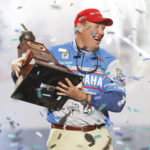
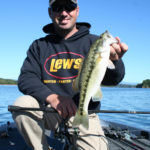
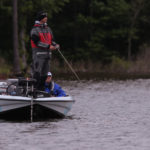
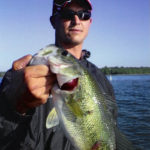
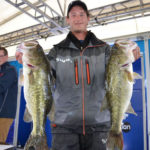
Be the first to comment